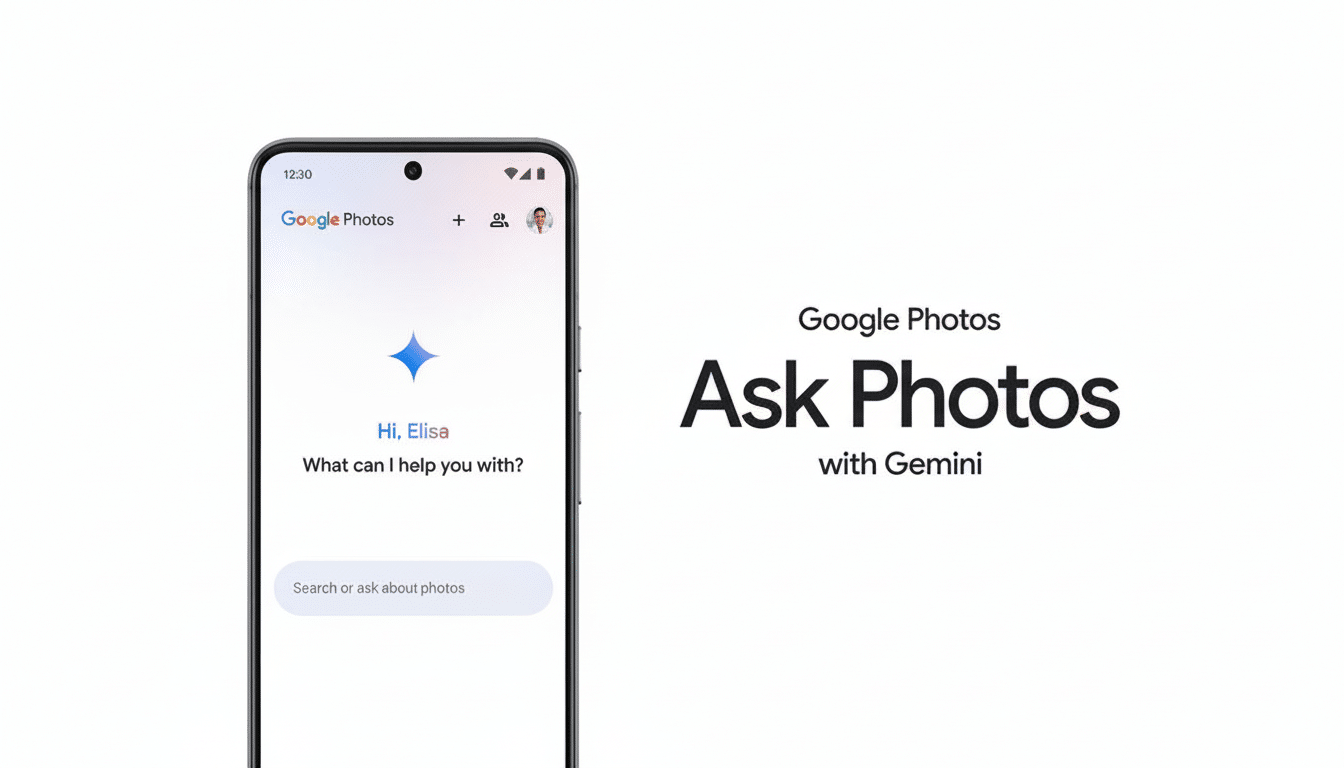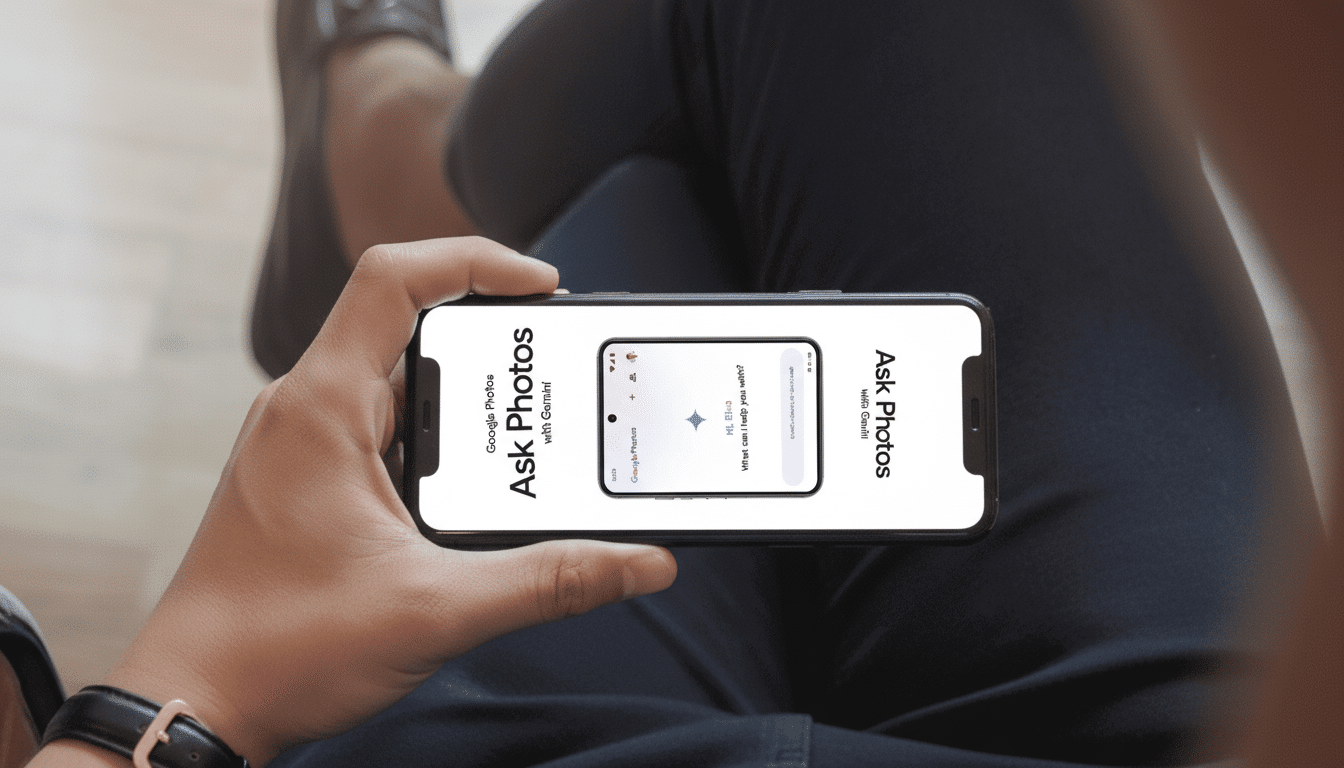Google has announced that its new conversational editing feature in the Photos app, Ask Photos, is an opt-in product and will not be provided to users based out of Texas and Illinois. After reports of issues from users whose accounts were affected, the company admitted to the limitation, although it said only that the tool for those states is down.
The omission is notable because Ask Photos has recently started to roll out more widely, beyond Google’s newest Pixels to additional Android devices across the United States. Elsewhere, the feature allows individuals to edit using typed or spoken prompts that are powered by Google’s Gemini models.
- What Ask Photos Does: Natural Language Editing Features
- Why Texas and Illinois Are Left Out of Ask Photos
- How many users are affected by the Ask Photos limit
- Privacy rules versus generative editing in Ask Photos
- What users in Texas and Illinois can do right now
- What to watch next as Google navigates privacy laws

What Ask Photos Does: Natural Language Editing Features
Ask Photos introduces natural language controls to edits you might otherwise have to hunt around in menus for. Think “brighten the sky,” “remove glare” or “make this photo black and white,” with the app taking care of the tasks in the background.
It’s also built to be context savvy across albums; you can say, “find the best shot of our beach trip and fix the shadows,” and it will not only surface candidates but also apply suggested tweaks. In states where it is live, the intent is to reduce advanced edits down to a single prompt.
Why Texas and Illinois Are Left Out of Ask Photos
Google provided no reason, but the most likely cause is the risk of noncompliance with biometric privacy laws. Both have strict laws around biometric identifiers, such as face geometry and voiceprints, and allow for private lawsuits over violations.
Illinois’ Biometric Information Privacy Act (BIPA) is the most aggressive in the country, and has prompted sprawling litigation across the tech industry. The Capture or Use of Biometric Identifier Act in Texas also prohibits the collection and use of facial or voice data, with enforcement by the state attorney general.
Google Photos has a history here. Face grouping and related functions have faced legal challenges that have resulted in high-profile settlements and policy shifts in Illinois and enforcement actions by the Texas attorney general. Local coverage, including from the Houston Chronicle, has connected Ask Photos’ latest absence to that legal backdrop.
How many users are affected by the Ask Photos limit
Together, Texas and Illinois are home to more than 40 million people, according to the U.S. Census Bureau. Since Android’s share of the U.S. smartphone market is in the mid-50% range according to StatCounter, that policy likely affects millions of possible Ask Photos users.

Not everyone in those states will even have immediate access, for that matter — Google is rolling out the feature in stages and it will require recent app versions and compatible devices. Nevertheless, the geofence has ruled out the possibility altogether for many who technically qualify.
Privacy rules versus generative editing in Ask Photos
Conversational editing mixes simple changes with inferences about people in photos. Even when a system doesn’t retain the faceprint of the image uploaded, activities such as comparing facial geometry, matching with other subjects or accepting voice commands can carry biometric liabilities based on an interpretation of those provisions that civil liberties groups have mentioned while delineating BIPA’s reach.
The ambiguity of it all breeds conservative product gating. We have already seen companies shut down or internally disable features like face clustering and voice matching in certain jurisdictions while they adjust consent flows, data retention limits and how much processing can be done on-device to meet state-level demands.
What users in Texas and Illinois can do right now
If you live in Texas or Illinois, Ask Photos simply won’t show up anymore, even with the most recent app downloaded. Other Google Photos tools are also accessible, such as Magic Eraser, Portrait Light, and HDR tweaks, as well as regular crop and color controls.
There is no workaround, according to Google. Availability is managed on the server side, and, due to restrictions, there will also be no extensive travel or account tweaking options that will be able to permanently enable it while the region lock is active.
What to watch next as Google navigates privacy laws
Google will no doubt polish up disclosures and documentation as it balances AI perks with state privacy laws. Any change is likely to include updated support notes, more explicit prompts for consent or reassurances cast in terms of on-device processing to reduce biometric privacy risk.
For now, the message is simple: Ask Photos is rolling out across the U.S., but some of its features are on hold in Texas and Illinois. Users elsewhere can continue to test the Gemini-powered edits as Google navigates the legal edge cases that AI and photography present.

